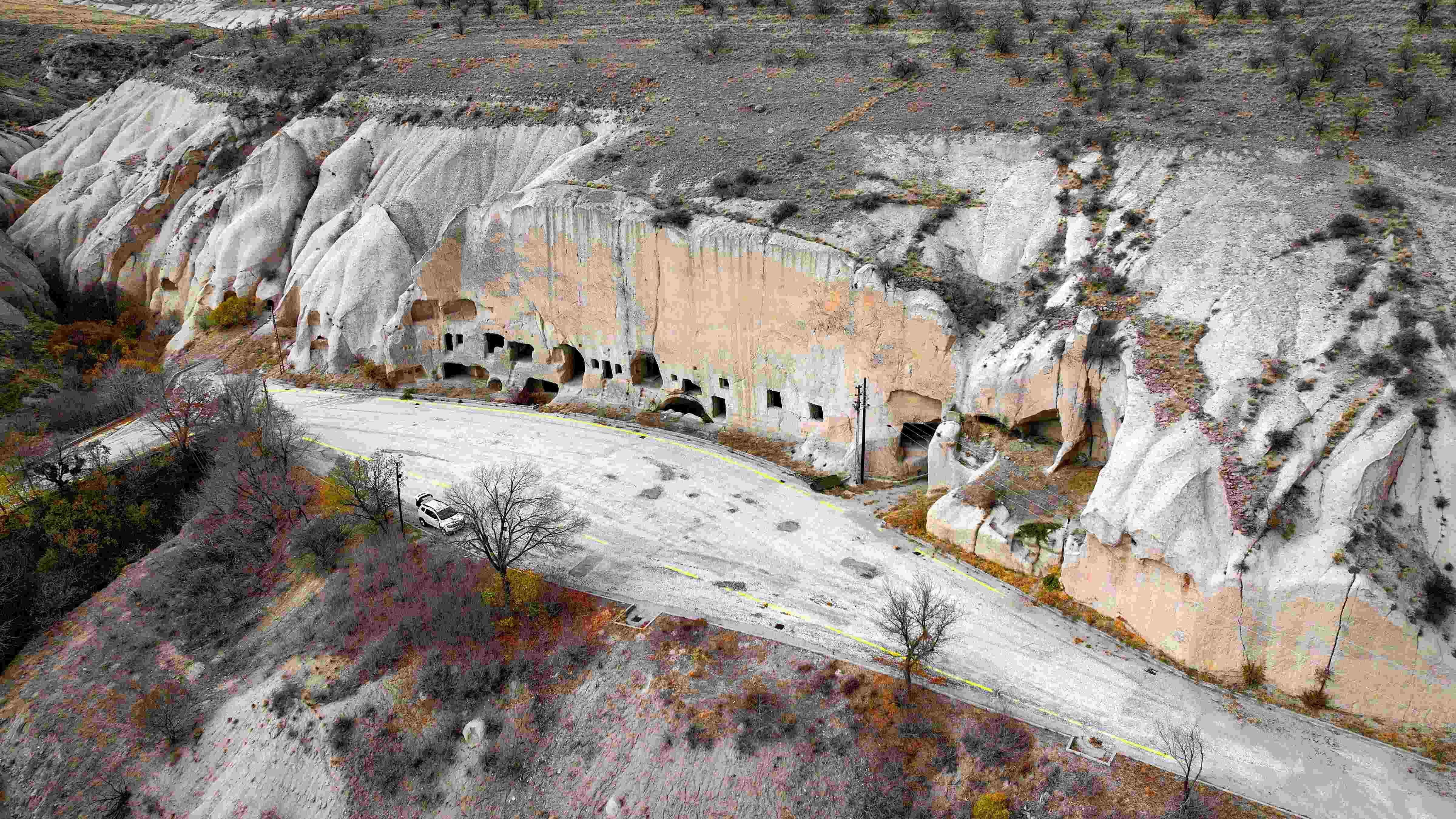
Located in the Central Anatolian province of Konya, the Akmanastır Monastery, featuring architecture similar to that of Cappadocia and carved into rock, has been revealed after the relocation of military barracks.
Situated at the base of a hill near the historic Sille neighborhood in the Selçuklu district, Akmanastır was built into tuff rock on a flat rock face. The monastery complex includes a church, a chapel, a holy spring (ayazma), monk cells, places for seclusion and even a small mosque.
According to its inscription, Akmanastır was renovated in the 11th century and is referred to in Christian historical sources as the "Church of Saint Chariton."
The church, carved into the rock with four rectangular piers supporting arches, is 20 meters tall and 13 meters wide. Its design follows the four-column layout commonly seen in Byzantine architecture.
One cave in the area is known as the "Virgin Mary's Baptismal Site" due to the belief that it has a spiritual connection to the cave where the Virgin Mary gave birth to Jesus. This information is detailed in the monastery's inscription.
Since 1927, Akmanastır has been preserved within the grounds of the 47th Ammunition Unit Command Ali Bağcı Military Barracks.
Associate Professor İlker Mete Mimiroğlu, Head of the Department of Early Christian and Byzantine Arts at Necmettin Erbakan University, noted that Akmanastır is one of the significant religious centers in Konya.
"It is believed that the monastery was established during the Late Antiquity by students of St. Chariton. This monastery stands out as one of the most important religious centers in the region. Being located in a military area has ensured its excellent preservation, but at the same time, it has been inaccessible to visitors, which makes it a subject of great curiosity among both domestic and international tourists. Inscriptions found within the monastery indicate that it was restored as early as the 11th century."
Noting that Akmanastır grew as a center during the Seljuk period, Mimiroğlu said, "Records show that Rumi frequently visited this monastery, spending seven days and nights in worship at the holy spring within. During this period, a mosque was built inside the monastery and notable figures of the Mevlevi Order prayed there. Historical records also mention gifts presented to the monastery. Having a mosque within a monastery is highly significant, as only three monasteries worldwide are known to feature one, making Akmanastır truly unique."